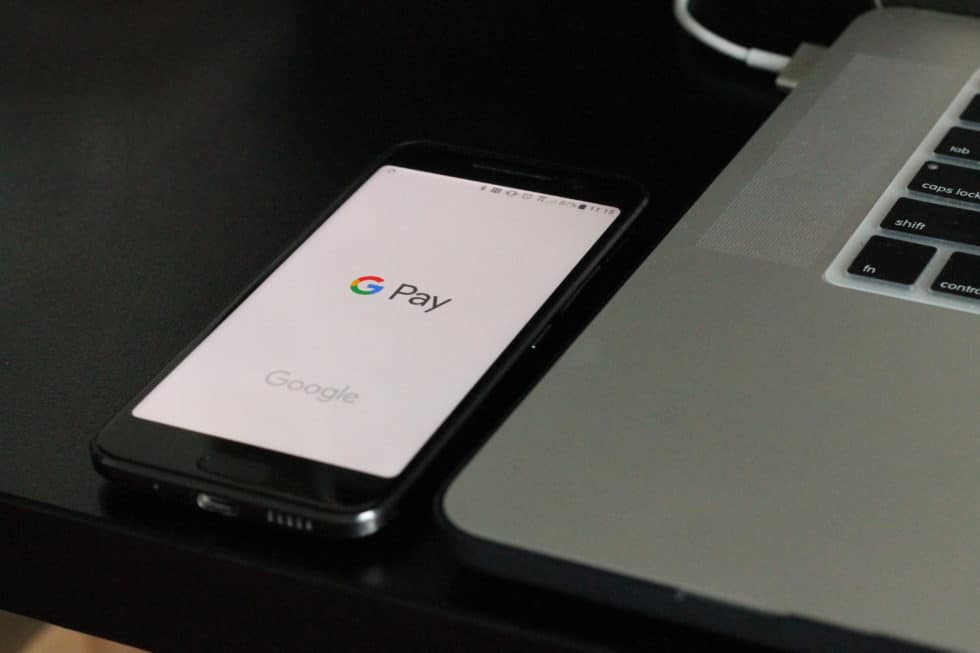Aus der Reihe: 6 Key Learnings von Dotcom-Unternehmen im Umgang mit digitalen Veränderungen (5/6)
Einführung
Stichwort Digitalisierung. Eine schier nicht enden wollende Herausforderung. Ein komplexes Thema – gerade für Unternehmen, die ihre Geschäfte hauptsächlich im und ums Internet abwickeln. Wenn diese dann noch Dienstleistungen anbieten, wird es besonders kompliziert. Zu Beginn des Jahrtausends herrschte in der Technologiebranche eine regelrechte Goldgräberstimmung. Jeder ahnte, dass die Etablierung des Internets und digitaler Technologien die Wirtschaft zukünftig maßgeblich bestimmen und verändern würde. Entsprechend groß war das Interesse der Anleger. Unternehmen mussten sich nur irgendetwas mit „Internet“ und „Technologie“ auf die Fahnen schreiben, um eine hohe Bewertung zu erzielen.
Digitale Transformation
Digitalisierung ist nicht mehr, wie vor 18 Jahren, ein Zukunftsthema, sondern Teil unseres Alltags. Anfassbar, begreifbar. Hatten die Techunternehmen damals oft nicht mehr vorzuweisen als ein „.com“ oder „.de“ im Namen, steckt hinter den Bewertungen der Technologiefirmen heute echter Wert. Dieser Wert bemisst sich an Kunden, an realen Umsätzen und vor allem an Daten, Daten und noch mehr Daten. Und gerade dieses Wissen um den Kunden, gepaart mit der Innovationsfähigkeit der Techkonzerne und dem Willen, sich stetig weiterzuentwickeln und zu wachsen, sind die Grundlage für die exponentiell steigenden Börsenbewertungen.
Mit ihrem Einfluss, der mittlerweile sehr weit fortgeschritten ist, leben die GAFA die digitale Transformation par excellence. Ließ vor 18 Jahren das „.de“ oder „.com“ im Namen den Kurs steigen, ist es heute irgendetwas mit Coin, Krypto oder Blockchain, das die Anleger in Begeisterung versetzt.

Was aus all dem deutlich wird: Wir befinden uns in einem der größten digitalen Wandel und einem derart rasanten Umbruch, das manche Unternehmen nicht mehr in ihrer digitalen Transformation hinterherkommen.
Jochen Siegert erzählt von seinen Erfahrungen aus unzähligen Silicon-Valley-Aufenthalten und möchte in seiner Nachfolgereihe der 7 Todsünden, die „6 Key Learnings von DotCom-Unternehmen“, den Umgang dieser Firmen mit diesem Wandel erklären. Er zeigt auf, was wir uns heute bei dem Umgang mit der Digitalisierung abschauen können.
Was waren die Strategien der großen Technologiekonzerne? In den kommenden Wochen wird er solche Rezepte, mit großer Empfehlung zum Nachmachen, hier im Blog genauer beschreiben und vorstellen.
Teil 5: Acqui-Hire als wichtiges Tool in Zeiten des rasanten Wandels
Bei der Keynote, auf der diese Artikelreihe basiert, sprach ich ganz selbstverständlich über den Begriff “Acqui-Hire”. Ein Fusionswort zwischen Acquisition (Unternehmensübernahme) und Hiring (Personalrekrutierung). Ich musste erstaunt feststellen, dass weder der Begriff noch das Konzept bei der Mehrheit der Zuhörer überhaupt bekannt war. Ebenso wenig die Nutzung als taktisches Element im Management von Veränderung eines Unternehmens. Acqui-Hire ist bei Techkonzernen ein mittlerweile vollkommen selbstverständliches Vorgehen, welches gerade die großen Tech-Marktführer seit Jahren anwenden, um sich und ihre Organisation bei Veränderungen zu beschleunigen. Unter Acqui-Hire versteht man die Übernahme und Integration von Start-ups und deren kompletten Teams.
Zuletzt zeigte sich dieses Vorgehen beim Paradigmenwechsel des veränderten Benutzerverhaltens in der Nutzung des desktopbasierten PCs zu mobilen Endgeräten wie Smartphones. Sowohl Google als auch Facebook waren Ende der 2010er Jahre in ihrem browserbasierten Geschäftsmodell herausgefordert. Presse und Investoren waren unsicher, ob die bewiesenen Advertising-Geschäftsmodelle auch auf dem kleinen Mobilscreen oder gar In-App funktionierten. Angeblich hat Mark Zuckerberg die Monitore der Entwickler bei Facebook auf eine Auflösung des mobilen Screens zwangsweise umstellen lassen, damit diese sich ausschließlich in der “neuen Umgebung“ bewegen, für die sie auch entwickelten.
Schöne, neue mobile Welt

Ende der 2010er Jahre waren Entwickler genauso wenig verfügbar wie heute. Mobile-Entwickler und Produktmanager waren aber noch seltener auf dem Markt. Gleichzeitig mussten sich die großen Tech-Konzerne auf die neue mobile Welt einlassen und sich anpassen. Anders als ein kleines Start-up benötigten die Konzerne aber hunderte Menschen, die sich mit dem Bereich befassen.
Neben dem Bedarf an Talenten und neuen Technologien, war ihnen klar, dass das Zeitfenster sich schnell schließt und der Druck der Investoren auf Anpassung sehr hoch war.
Wie reagierten die Konzerne auf diese Herausforderung? Sie beschleunigten die Integration von Talent und Technologie durch Acqui-Hires. Wie man sehr anschaulich sieht, hat sich die M&A-Aktivität von Google und Facebook in den relevanten Jahren erst stark erhöht und dann wieder beruhigt. Die beiden Konzerne haben sich also systematisch Firmen einverleibt, um sich schneller anzupassen.

Auch PayPal stand vor dieser Herausforderung. Wenn die Kunden ihre mobilen Endgeräte häufiger nutzen, werden diese damit auch mehr mobil einkaufen. Und dafür benötigt es eine bequeme, mobile Bezahlfunktionalität. Auch PayPal übernahm dafür Unternehmen, um sich schneller anzupassen. Ein besonders gutes Beispiel für Acqui-Hire war im Jahr 2011 die Übernahme des Mobile-Payment-Anbieters Zong.
Acqui-Hire: PayPal übernimmt Zong
Zong, spezialisiert auf die Bezahlung per SMS über die Telefonrechnung, brachte Talent in die PayPal-Organisation. David Marcus, der Gründer und CEO von Zong, wurde erst SVP Mobile von PayPal und ersetzte nach dem Weggang von Scott Thompson zu Yahoo, diesen als CEO/Präsident von PayPal. Hill Ferguson, der ehemalige Produktleiter von Zong, wurde später globaler Produkt-Chef von PayPal. Ohne Marcus und Ferguson an den beiden entscheidenden Positionen von PayPal, hätte die PayPal-Organisation den schnellen Wandel zu “Mobile” nicht in dieser Form und Radikalität durchgeführt. Über einen Headhunter hätte PayPal die beiden Talente vermutlich niemals gewinnen können, sondern nur über Acqui-Hire.
Nach den Beförderungen von verschiedenen Zong-Managern in wichtige Positionen bei PayPal, sprachen intern einige sogar von einem Reverse-Take-Over. Also nicht PayPal hätte Zong übernommen, sondern de-facto umgekehrt. So oder so, es hat dem PayPal-Produkt und der Organisation extrem gutgetan und PayPal zu einem wichtigen Zeitpunkt entscheidend geprägt. Was bedeuten diese Entwicklungen nun für hiesige Finanzdienstleister, die sich mit “dieser Digitalisierung” herumplagen müssen? Acqui-Hire ist auch bei uns ein nützliches Tool im Strategie-Werkzeugkasten.
„Die Übernahme von Zong haben dem Produkt und der Organisation extrem gutgetan und PayPal zu einem wichtigen Zeitpunkt entscheidend geprägt.“
Auch bei den vielen FinTech-Start-ups in Deutschland gibt es etliche Möglichkeiten für Acqui-Hires. Banken und Sparkassen können sich dabei sowohl Talent als auch Technologie einverleiben. Und das in einem viel schnelleren Zeitraum, als auf einem normalen Weg. Zeit ist Geld, dies gilt vor allem auch bei der Digitalisierung. Ein sehr schönes Beispiel für Acqui-Hire ist die Übernahme des Teams von Cringle durch die DKB Code-Factory.
Erfolgsfaktoren
Damit Acqui-Hire zu einem Erfolg werden kann, muss bei dem übernehmenden Unternehmen die Wertschätzung für das übernommene Team vorliegen. Nur wenn die neuen Mitarbeiter auch wirklich einen Unterschied auf Produkt- und Prozessebene machen können, bleibt deren Motivation für das Unternehmen. Produkte lassen sich schneller und kundenzentrierter digitalisieren. Wird vielleicht bald bei uns ein FinTech-Gründer bzw. Gründerin dem Vorstand einer klassischen Bank vorsitzen, wie PayPal es z.B. vorgemacht hat? Da wird vermutlich noch viel Wasser des Frankfurter Mains an den Türmen vorbeifließen, bis so etwas passiert.
Voraussetzung dafür ist vermutlich erst einmal mehr Digitalisierungs-Know-How und Unternehmertum im Aufsichtsrat selbst. Dessen “Mind-Set” ist wichtig bei der Besetzung neuer operativer Vorstandsstellen. Den Banken täte es gut, wenn nicht nur der Anspruch auf Unternehmertum und Technologieführerschaft in den Keynote-Ansprachen der Vorstände erwähnt, sondern tatsächlich vollumfänglich in der Organisation umgesetzt würde.
Key Learnings im Überblick:
Teil 1: Unternehmerisches Handeln schlägt Corporate Politics




